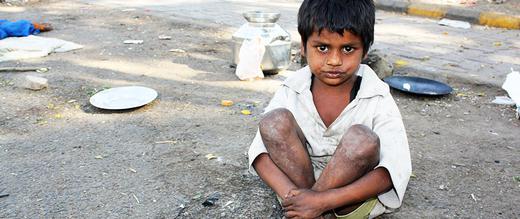The views expressed in our content reflect individual perspectives and do not represent the authoritative views of the Baha'i Faith.
Most of the attempts to understand theodicy–explaining why God allows the existence of suffering—arise out of particular understandings of life and the purpose of our existence.
So I’ll try to make my assumptions clear first, before we search for some answers on the question of suffering. Let’s start with the terms “suffering” and “evil” themselves. Human suffering can have two causes: natural and human.
 As we know, natural events—storms, earthquakes, tsunamis, volcanoes, drought, disease–can and do cause great suffering. Science has shown that these individual or mass disasters usually result from the natural laws that govern our universe. They cannot be considered evil acts, because no moral choices led to these events. We can’t, therefore, describe an earthquake or an epidemic as evil, regardless of the scale of suffering they may cause. In these series of articles I’ll call this “natural suffering.”
As we know, natural events—storms, earthquakes, tsunamis, volcanoes, drought, disease–can and do cause great suffering. Science has shown that these individual or mass disasters usually result from the natural laws that govern our universe. They cannot be considered evil acts, because no moral choices led to these events. We can’t, therefore, describe an earthquake or an epidemic as evil, regardless of the scale of suffering they may cause. In these series of articles I’ll call this “natural suffering.”
On the other hand, human actions committed with the deliberate purpose of inflicting grief or pain or death require a moral choice. We consider war or an assault evil acts, because the perpetrators know in advance that they will cause suffering. In this series of articles we’ll call these actions evil.
We know the world we live in is no paradise. We know that we humans aren’t perfect—that we have flawed and sometimes violent natures. We also know we are rational creatures capable of moral choices and judgments. We now know, too, that we are the result of a slow, ongoing process of evolution. We have free will, and if we believe in God we became aware of the Creator through a free act of interpreting reality–we have faith, and understand that something exists beyond the material world.
With these assumptions and concepts, we can formulate some questions and search for answers.
The Baha’i writings tell us that remoteness from God is a fundamental characteristic of our human condition—not a moral flaw or the result of an imperfect inner nature. Baha’is understand the current human situation, with all its ambiguities, not as the result of an evil act in the distant past that attempted to subvert the will of God, but as a stage in our spiritual evolution as a species.
According to the Baha’i teachings, our earthly life does not encompass the totality of human existence—our souls progress to another, more spiritual form of existence after the death of the physical body. But Baha’is believe, during this physical stage of life, that we all begin a process of spiritual development, and this spiritual development continues after death. Suffering, from a Baha’i perspective, is the key to that spiritual development.
You May Also Like
Comments

















It's this notion of a remote God or cruel gods (or non-existent god) you allude to that certain atheists in increasing numbers nowadays hold up as 'the first cause' to ridicule religion
It’s not our job to hold God responsible for His doings. The boot is actually on the other foot. Only those who have joined partners with God insist for example that He was grossly wrong to allow the Holocaust. Theodicy to them is a dead letter. Leave them to themselves and pray for the progress of their souls. Our collective responsibility ...is to unmask the wickedness of the evil Nazi’s, to bring them to justice, to commiserate with the survivors, more importantly - to help the victims and most importantly – to permanently prevent similar atrocities that persist into our time. In the cold light of logic the signs of man’s cruelty to man no more disprove the existence of God than centuries of putatively idyllic life in a tropical paradise apparently prove His presence there.
Any suggestions Marco as to how to expand interactivity on this super site???
Baha'i love
Paul
And what a brilliantly simple but not simplistic understanding you have i m o Marco, vis-a-vis this age old question of suffering and evil.
I find it amusing that polytheists answer your questions by opining that the gods are in dispute and ergo the fall out brings on suffering for mere mortals
Didn't the Master say vis-a-vis your views on 'evil', that only a relative lack of good exists?
My only concern about this site is why are there so few comments given the high number of approvals, the quality of the articles and ...the positive attitude of the administrators who seem i m o rather liberal in allowing some of my comments verging on the inflammatory
Is it perhaps a perception that too many articles appear? The more the merrier as far as I'm concerned.
There's probably a history I'm not familiar with and a mission statement, vision or policy that I'd like to know about
Baha'i love
Paul